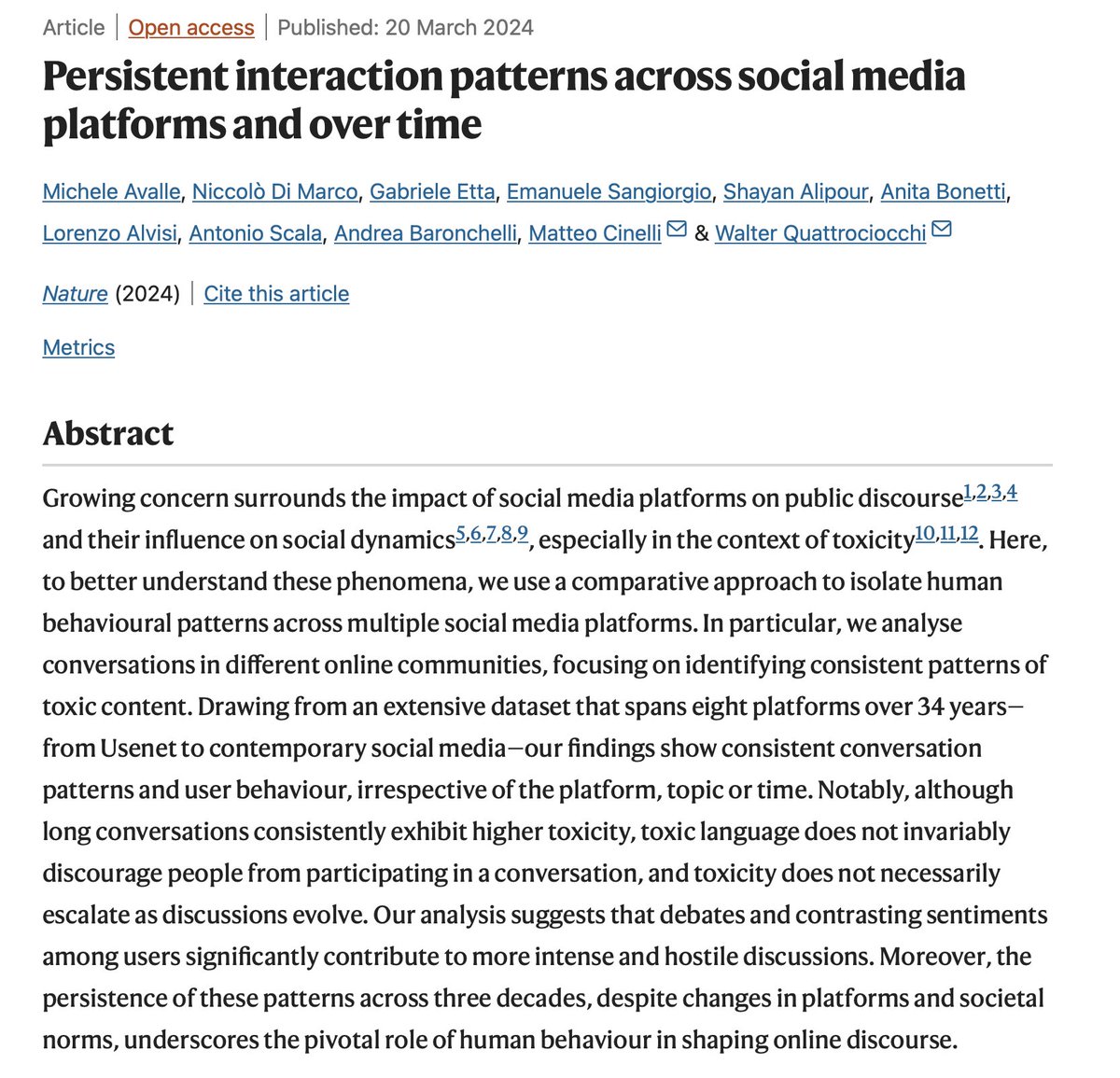
W. Quattrociocchi
@Walter4C
Followers
2K
Following
1K
Media
168
Statuses
1K
Full Professor @Sapienza University of Rome ~ Data Science and Complexity for Society #IVLP
Joined January 2012
Finally out our paper in Nature "Persistent Interaction Patterns across Social Media and Over Time". #Toxicity #OnlineSocialDynamics @a_baronca @matteo_cinelli @RicercaSapienza @SapienzaRoma
2
26
107
RT @lastknight: Oggi nuova puntata di "Intelligenze Artificiali - Luci e Ombre": sarà mio ospite @Walter4C , Professore Ordinario di Infor….
0
2
0
"Fact-checking fallito? Ne parlo su Login del Corriere: cosa non ha funzionato e perché dobbiamo ripensare il modello di business delle piattaforme social. #Disinformazione #DataDrivenPolicy
0
3
3
5/ 🚀 Takeaway:.Social media does not mirror political reality. Instead, it amplifies noise, distortion, and selective narratives. 📄 Read the full paper: DOI: #DataScience #Elections #SocialMedia.
0
1
3
RT @meharpist: Is science informing policy? A @nature survey finds that most respondents don't think that there are good systems in place t….
0
2
0





